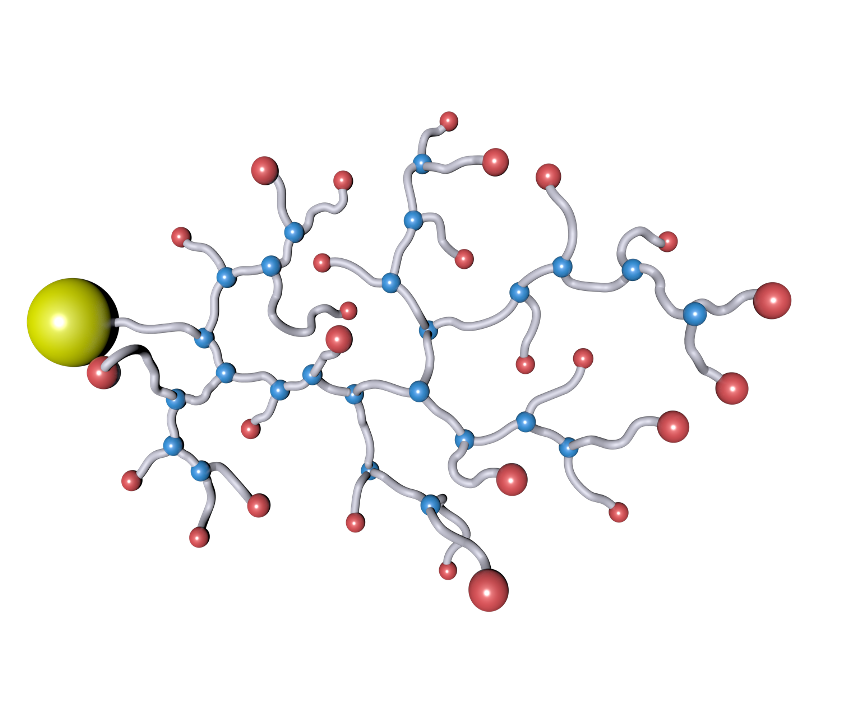Exploring the Varied Applications and Advantages of Polymers in Different Industries
Polymers, with their diverse array of buildings and performances, have come to be important in various sectors, each gaining unique advantages from their application. From improving safety and security and efficiency in the automotive sector to transforming clinical tools in the healthcare industry, polymers play a critical role.
Automotive Sector Applications
Polymers play a pivotal function in boosting the efficiency and toughness of various components within the automobile market. One noticeable use of polymers in the automobile market is in the manufacturing of lightweight components.

Healthcare Industry Advantages
In different health care applications, the advantages of using polymers are commonly identified for their diverse variety of beneficial properties. Polymers play an important duty in the healthcare industry due to their flexibility, biocompatibility, and cost-effectiveness. Among the main advantages of polymers in medical care is their capacity to be tailored to specific needs, such as adaptability, resilience, and biodegradability, making them perfect for a large variety of clinical applications.
Polymer-based materials are extensively utilized in clinical devices, such as catheters, implants, prosthetics, and drug delivery systems, as a result of their biocompatibility and capacity to simulate natural tissues. These products can minimize the danger of allergic responses or denials, improving client safety and end results. Furthermore, polymers are lightweight, making them suitable for wearable clinical gadgets and ensuring person convenience.
In addition, polymers allow the growth of ingenious treatment techniques, such as hydrogels for tissue engineering and nanocomposites for targeted medicine shipment. Their convenience of processing and sanitation makes them vital for maintaining high requirements of health in healthcare settings. On the whole, the diverse benefits of polymers add considerably to innovations in medical innovation and person care.
Ecological Advantages of Polymers

Furthermore, polymers can contribute to energy cost savings as a result of their light-weight nature. In sectors such as transport, light-weight polymer products can help reduce fuel consumption and greenhouse gas emissions. Furthermore, polymers can allow the growth of energy-efficient items such as insulation products that enhance power conservation in buildings.
Moreover, polymers play a critical role in reducing water contamination. For instance, the see this site usage of polymer-based filtering systems can efficiently get rid of pollutants and pollutants from wastewater, safeguarding water sources and communities. Overall, the ecological advantages of polymers make them important assets in promoting sustainability and environmentally friendly practices across different sectors.
Polymers in Electronic Devices and Innovation
Considering the raising demand for cutting-edge and sustainable solutions in contemporary industries, the integration of sophisticated polymer innovations in the world of electronic devices and innovation has emerged as a crucial approach for driving efficiency and performance. Polymers have transformed the electronic devices industry by making it possible for the manufacturing of lighter, much more adaptable, and long lasting digital devices. From smart devices to medical devices, polymers play a crucial function in improving product check it out style and functionality.
One considerable benefit of polymers in electronics is their insulating properties, which assist shield delicate digital parts from environmental factors and electrical interference. Furthermore, polymers are crucial in the advancement of adaptable displays, wearable innovation, and published electronic devices, providing limitless opportunities for creating wise and interconnected tools.
Furthermore, the use of polymers in digital product packaging has resulted in improvements in miniaturization and thermal monitoring, improving the overall efficiency and dependability of electronic systems. As innovation proceeds to advance, the versatility and versatility of polymers will most certainly drive further development in the electronics market, shaping the future of innovation.
Function of Polymers in Construction and Infrastructure
Polymers provide numerous benefits in the building industry due to their convenience, toughness, and cost-effectiveness. One crucial role of polymers in building and construction is their usage in coverings and sealers, supplying protection versus environmental factors such as dampness, UV radiation, and corrosion.
Moreover, polymers play a critical function in lasting building techniques by allowing the development of energy-efficient frameworks. Insulating products made from polymers help control interior temperatures, lowering the requirement for home heating and cooling systems and inevitably lowering power consumption. The use of polymer-based compounds in infrastructure jobs such as bridges and roadways enhances their long life and decreases upkeep costs. In general, the unification of polymers in construction and facilities displays their substantial influence on contemporary design practices.
Conclusion
Finally, polymers play a vital duty in various industries such as auto, healthcare, environmental, electronic devices, and building. Their versatile properties make them beneficial in creating innovative options and products. From enhancing fuel efficiency in vehicles to enhancing medical devices, polymers offer numerous benefits. In addition, their effect on lowering waste and advertising sustainability highlights their value in contemporary applications. The extensive use polymers demonstrates their substantial payment to advancing technology and improving lifestyle.
Comments on “Comprehending Polymers: The Scientific Research Behind Versatile Products”